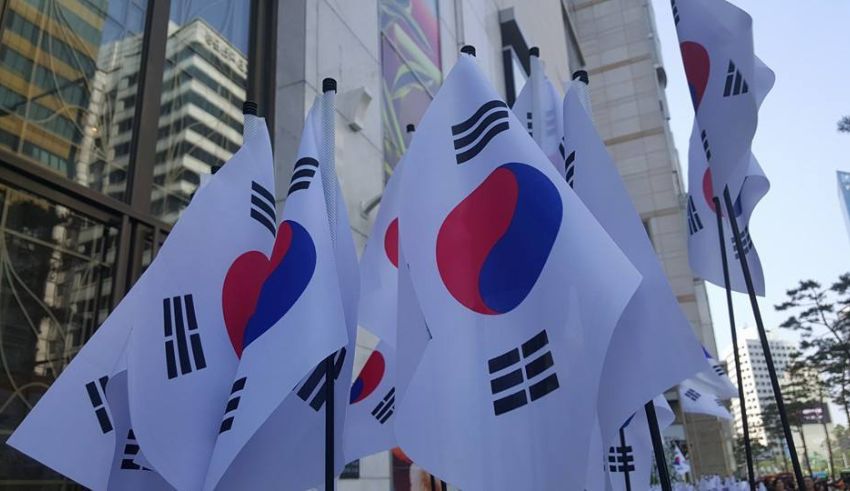
Targeting colleges and universities first, South Korean officials recently found a large network of deepfake pornography created by artificial intelligence floating on the Telegram chat service. Following this disclosure, young activist Bang Seo-yoon began gathering stories from others whose personal photographs had been exploited deliberately.
Her efforts have brought attention to the growing issue of sexual cyber assault in the country as she documented multiple cases of schoolboys stealing innocent images from Instagram and use of artificial intelligence technology to generate explicit images aimed to embarrass female coworkers and even teachers.
A deadly combination of technology and inadequate regulations
Long battling sexual cyberviolence, South Korea is a nation known for its advanced technology and fast internet. Experts—especially in universities—claim, however, that the unfettered spread of Telegram chat rooms and artificial intelligence technology worsen the issue.
The ability to employ artificial intelligence to modify images has let criminals quickly and easily create deepfake content, which has shockingly raised the frequency of sexual harassment cases involving children. Inappropriate laws and the anonymity provided by channels like Telegram have allowed this problem to grow and left victims with no means of retribution.
Bang, just eighteen years old, has taken front stage in raising awareness of and support for victims of this alarming trend. Thousands of young women have come forward claiming to have been targeted by deepfake pornography since the authorities first found these chat rooms in August. Her artwork highlights the horrible consequences of these crimes not only in terms of the creation of the deepfake images but also in terms of their wide distribution among acquaintances, which causes much more emotional suffering and shame for the victims.
Teenagers Are Common Among Those Perpetrators
Presumably most of the participants in the deepfake crisis are teenagers. Many of these offenders, according to police, steal images from social media accounts, modify them into pornographic content, and then post them in chat rooms designated expressly for this purpose.
These chat rooms could have nasty names and rules requiring participants to post pictures of women they wish to see “punished,” therefore supporting a culture of harassment and victimizing.
With cybersecurity startup Security Hero estimating a 500 percent increase in 2023 alone, the proliferation of deepfake content has surprisingly quick global dissemination. Out of those singled out for deepfake crimes, 99 percent are women; many of them are well-known actors and singers.
While regular women in South Korea battle to find justice since law enforcement frequently falls behind in handling these crimes, public individuals have strong legal teams to protect their interests.
Building Complaints and Inadequate Legal Reactions
This is shown by South Korea’s low rates of prosecution in spite of rising deepfake crime count. Just 16 persons were arrested and prosecuted out of 793 deepfake events noted between 2021 and July 2023. Complaints surged following the chat room debate in late August; only five days saw 118 cases noted.
Seven persons have been arrested; six of them are young kids, hence it is challenging to seek significant legal action against them since the South Korean courts treat youngsters lightly. Discovered chat groups by authorities reveal a dangerous online environment where peers insult and offend victims sexually.
According to Kang Myeong-suk, head of victim support at the Women’s Human Rights Institute of Korea, many of the victims now live in constant anxiety about their changed images still being circulated among friends and classmates. This sensitivity and violation transcends the initial act of creating the deepfake image.
Traumatized survivors leave behind guilt
For the victims, the psychological and emotional toll is tremendous. Many people victim-blame; some online users downplay their suffering by claiming the pictures aren’t “real.” But as Kang points out, the actual anguish the victims endure is not lessened just by changes to the images. Victim-blaming attitudes aggravate the situation by underplaying the seriousness of the crimes and suggesting that those affected should simply “get over it.”
Though South Korea has long had low crime rates, for years the country has seen an epidemic of spy-cam crimes leading to significant demonstrations in line with the global #MeToo movement in 2018. Although the sanctions for infractions like deepfake creation still fall short, these demonstrations resulted in tougher regulations on cybercrimes and sexual harassment.
Professor Yoon Kim Ji-young noted that even in cases involving significant emotional damage to the victims, fines or probation are the most often used outcomes of the inadequate penalties imposed to offenders. The part
Telegram and antagonism to law enforcement play
Since Telegram’s chat system enables these crimes to be carried out, more research on it is under progress. Well-known for its encryption and opposition to law enforcement collaboration, Telegram has permitted illicit activity including deepfake pornography to flourish unrestrained. The network’s creator, Pavel Durov, was recently arrested in France for failing to regulate deepfake pornography and other illegal materials on Telegram.
However, the absence of platform cooperation fuels more difficulties for South Korean authorities trying to punish offenses. One victim of a deepfake porn incident in 2021 sent AFP her horrifying account. After learning explicit, AI-generated images of herself being sexually assaulted became viral on Telegram, she had to start gathering evidence against her perpetrator.
Keep Reading
Though she had hardly spoken to him, another student at Seoul National University, her assailant was someone she had always considered to be “gentle.” She is still fighting for justice; the emotional fallout from this betrayal is severe. In a letter she wants to show the court on September 26, she underlined her suffering: “The world I thought I knew utterly collapsed. Just because they are women does not mean anyone should be considered as an object or utilized as a way of offset for the inferiority issues of persons like the defendant.
Government Review and the Need of Reform
Further casting doubt on the government’s commitment to combating gender-based violence are President Yoon Suk Yeol’s disdain of feminism and his assigning of responsibility for South Korea’s low birth rate on feminist movements. Critics argue that his rhetoric has permitted men to be hostile or discriminating toward women, therefore promoting a more general sexism and impunity in society.
The issue still runs rampant even if other well-publicized Telegram porn scandals like the 2020 incident in which a gang of men forced women into creating sexual content for paid chat rooms have come to light. Although the ringleader was imprisoned at that time, activists assert that not much has changed in the years following.
Call for Justice and Responsibility
Deepfake pornography incidents revealed in South Korean institutions have led to increased demands for stricter laws and better enforcement to protect victims from the psychological and emotional harm these crimes cause.
Advocates like Bang Seo-yoon are continuing their battle to bring attention to the issue by gathering victim testimonies and working to ensure that their voices are heard. Nevertheless, without significant legislative changes and stronger accountability for platforms like Telegram, the fight against deepfake crimes in South Korea is far from done.


























